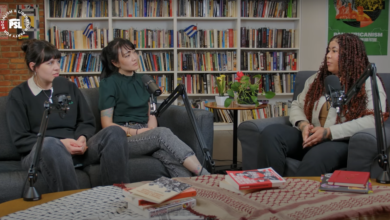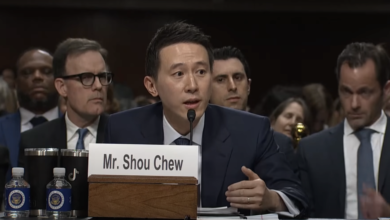On March 8, 1971, eight progressive activists staged a daring break-in at the FBI offices in Media, Pennsylvania, outside Philadelphia, liberating nearly all the documents in the office. This was before the time of the Internet; the thousands of seized documents had to be packed into suitcases and boxes and spirited away.
As a young activist engaged in the struggle against war, racism and state repression, I, like so many others, was inspired by this courageous blow struck against the FBI.
On Jan. 6, 2014, several of the participants came forward for the first time to reveal their bold action that exposed the often murderous role of the FBI as the domestic secret police of U.S. imperialism.
Despite the fact that 200 agents were assigned to apprehend them, they were never caught, testimony to the highly professional manner in which the action was carried out. The group spent months surveying the office, and chose the night of a very widely watched championship boxing match between Muhammad Ali and Joe Frazier to stage the break-in. The statute of limitations for burglary in Pennsylvania expired in 1976.
The group, the Citizens Commission to Investigate the FBI, mailed documents to many media outlets. The articles that followed showed beyond the shadow of a doubt that the fascistic FBI director, J. Edgar Hoover, saw the agency’s main mission as destruction of Black, Latino and Native liberation organizations and the massive anti-war movement.
Hoover was particularly focused on destroying the Black Panther Party, who he called “the greatest threat to the internal security of the country.” Dozens of leading BPP members were killed, hundreds more beaten, tortured and jailed, and virtually every Panther office in the country was attacked and ransacked by cops.
In a 1968 memo, Hoover wrote, “that the purpose of counterintelligence action is to disrupt the Black Panther Party, and it is immaterial whether facts exist to substantiate the charge.”
The FBI made war on the American Indian Movement, resulting in many killings and jailings. One casualty of that war is Leonard Peltier, who has been imprisoned since 1976, falsely convicted of killing two FBI agents who had invaded the Pine Ridge reservation in South Dakota.
The Puerto Rican independence movement was also heavily targeted, resulting in outrageously long prison sentences for many activists. Oscar Lopez Rivera, a central leader, remains in prison to this day.
Uncounted thousands of anti-war and other progressive activists were arrested, harassed and/or lost their homes and jobs due to FBI targeting.
Among the documents seized in the Media action was one with the word “Cointelpro” written on it. The term was only later exposed to mean “Counterintelligence Program,” which the FBI had formally established in 1968 to coordinate actions to disrupt and destroy mass movements.
Prof. Loch K. Johnson, who served as an aide to a Senate probe chaired by Sen. Frank Church in 1975-76, said: “It wasn’t just spying on Americans. The intent of Cointelpro was to destroy lives and ruin reputations.” A favored tactic of Cointelpro was to send fraudulent or anonymous letters designed to poison relations between radical organizations, or individuals in the same groups.
While many of us involved in the mass movements of the time were highly aware that the FBI and other police agencies were engaged in such activities, it took the bold Media action to make the reality undeniable.
As Keith Forsyth, one of the participants in the 1971 actions and then a 20-year-old cab driver, put it in an interview with the New York Times: “When you talked to people outside the movement about what the FBI was doing, nobody wanted to believe it. There was only one way to convince people that it was true, and that was to get it in their handwriting.”
The Media action opened the way for many more exposures of government spying, infiltration and violence against the Left.
It was a brave and revolutionary act, carried out at great risk to the participants. The initiator was William C. Davidon, an anti-war activist and professor at Haverford College, who set the process in motion following the U.S. invasion of Cambodia in the spring of 1970. He was also planning to go public, but died late last year.
In addition to Forsythe, three other participants who came forward were Bob Williamson, and Bonnie and John Raines; three others chose to remain anonymous. The Raines had two small children and arranged for family members to raise them if they were captured and imprisoned.
When asked why they went ahead, John Raines replied: “It looks like we were terribly reckless people. But there was absolutely no one in Washington–senators, congressmen, even the president–who dared to hold J. Edgar Hoover to accountability. It became pretty obvious to us that is we don’t do it, nobody will.”
Like Chelsea Manning and Edward Snowden, the Media Pa. activists’ only “crime” was exposing the real crimes of the capitalist state. They deserve the profound gratitude of all who are fighting against a brutal and oppressive system.





